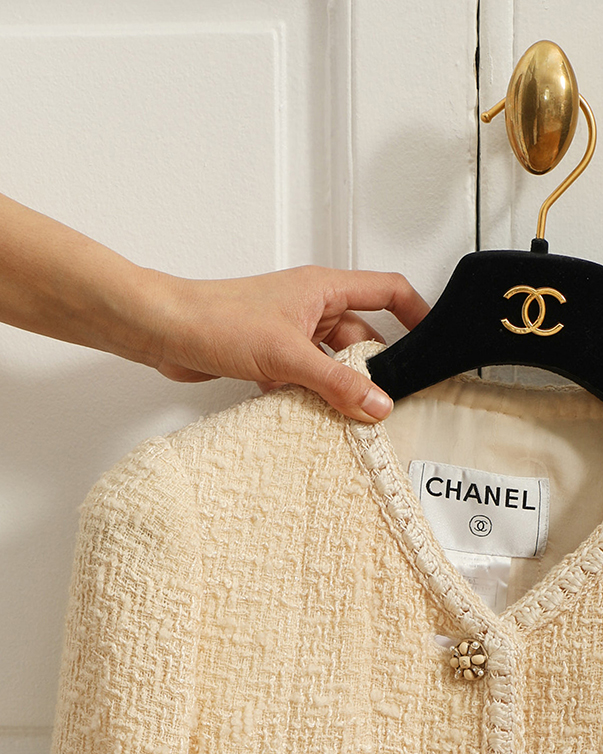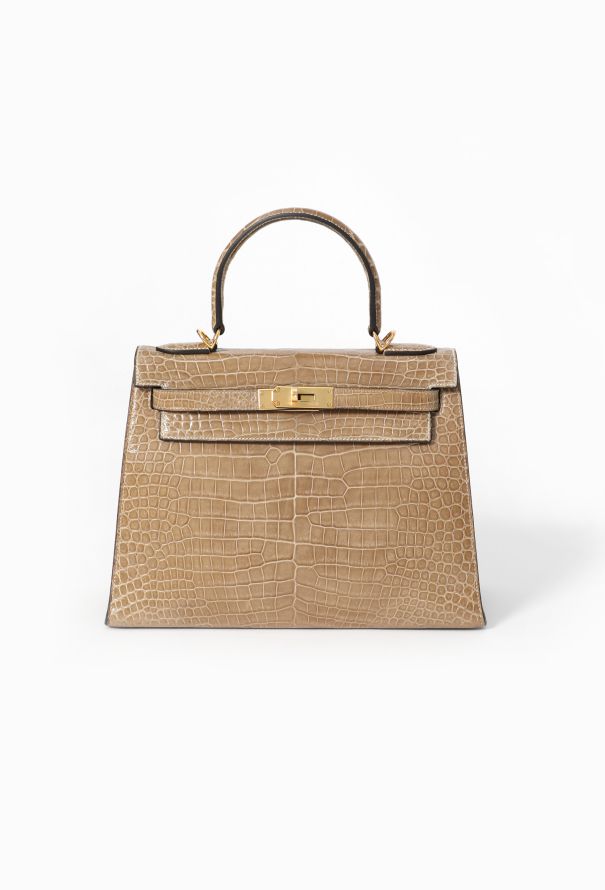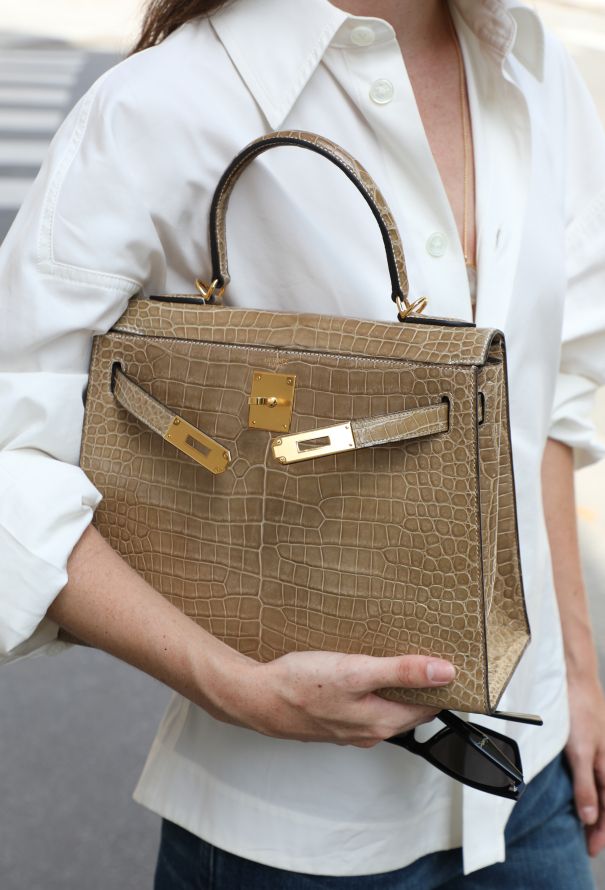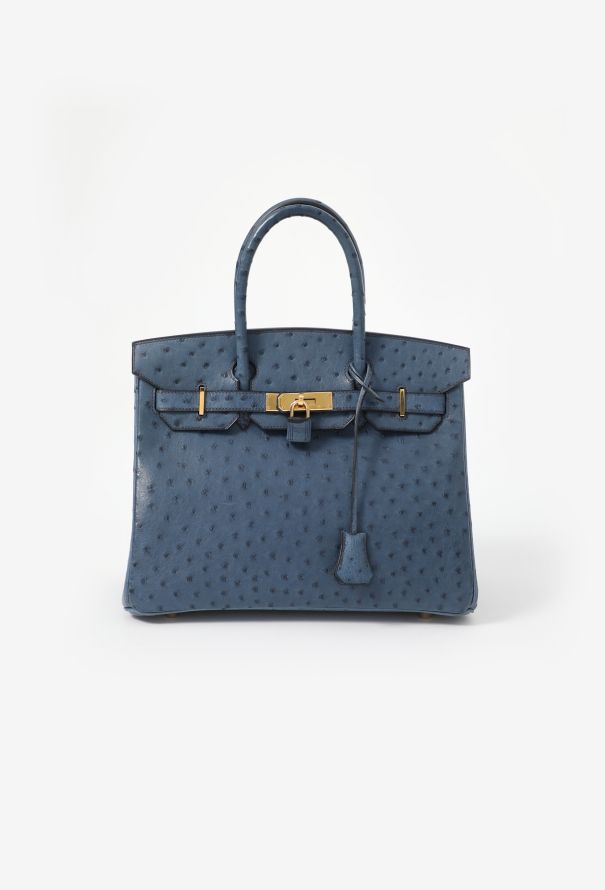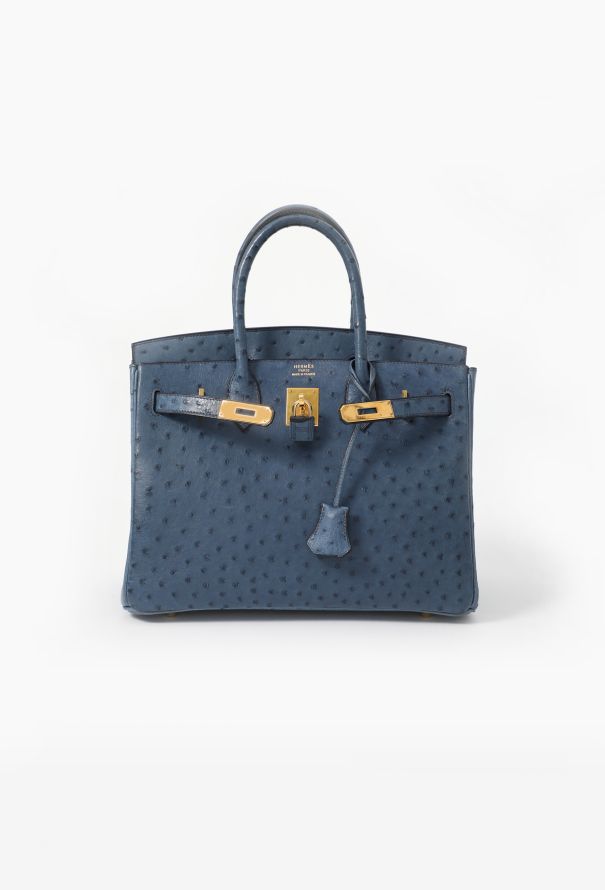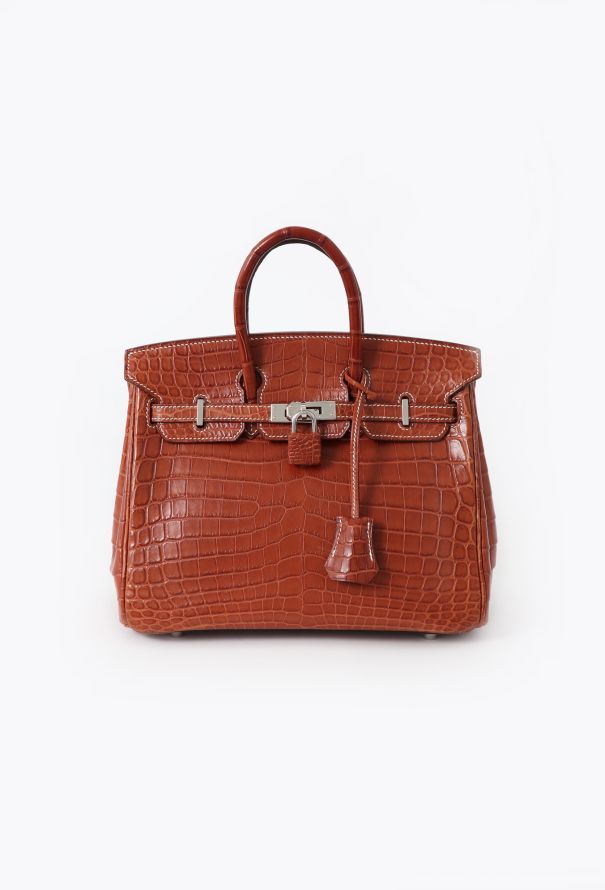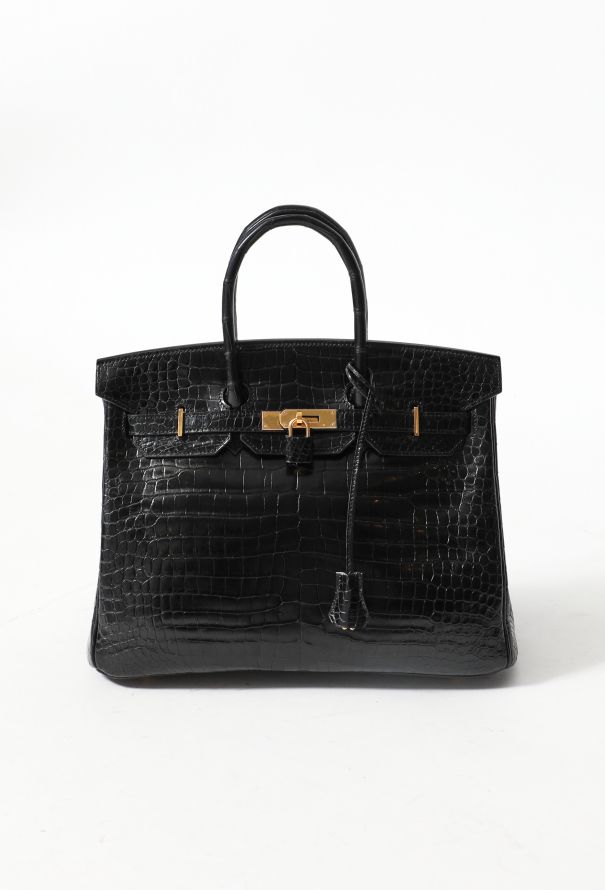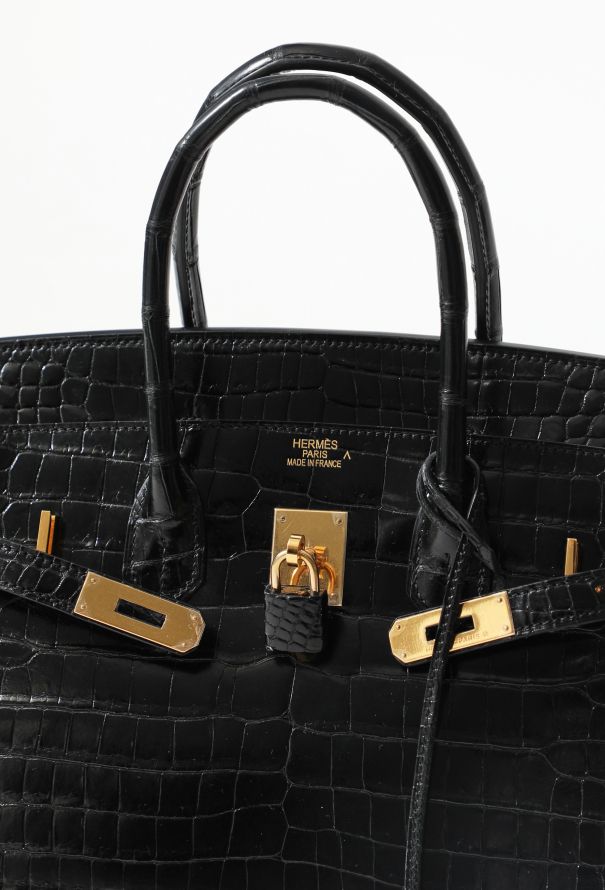Hermès Exotiques : Le Guide de l’Expert
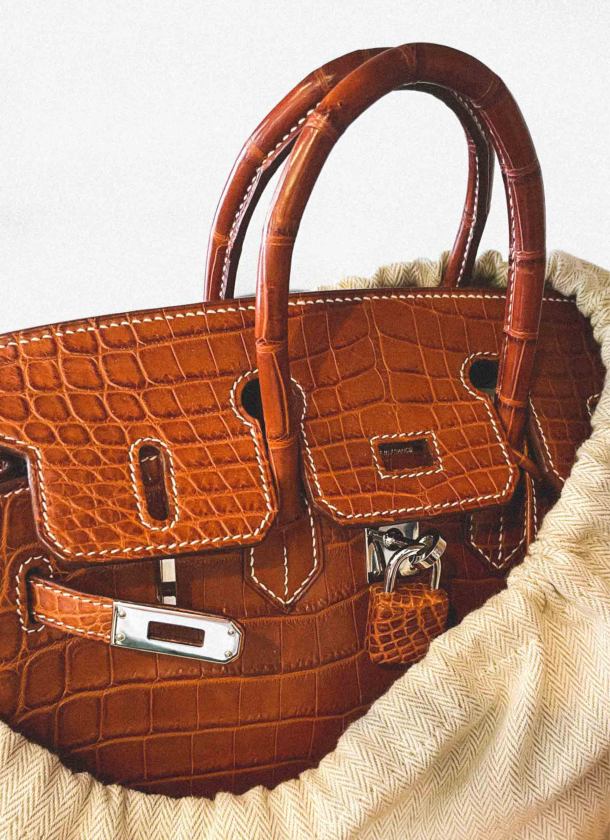
La seule chose plus convoitée qu’un sac Hermès, c’est un Hermès en cuir exotique.
Entièrement réalisés à la main dans les ateliers Hermès, ces cuirs d’exception sont rigoureusement sélectionnés pour garantir que seules les peaux les plus précieuses sont utilisées dans chaque sac.
Découvrez tout ce qu’il faut savoir avant d’investir dans un sac Hermès en cuir exotique.
Crocodile Porosus
Le crocodile Porosus est considéré comme le roi des cuirs précieux Hermès, en raison de sa rareté extrême et de sa qualité exceptionnelle. C’est l’un des cuirs les plus convoités et les plus onéreux de la Maison.
Principalement originaire d’Australie, il se distingue par ses minuscules pores visibles sur chaque écaille et se décline en deux finitions :
- Mat : au toucher soyeux et élégant.
- Lisse (Shiny) : obtenu grâce à un polissage minutieux à la pierre d’agate, un processus long et méticuleux qui lui confère un éclat unique.
Pour les sacs récents, le cuir Porosus est facilement reconnaissable grâce au symbole “^” (accent circonflexe), apposé à côté du marquage Hermès ou sur un panneau du sac.
Sur les pièces vintage ne portant pas cette indication, il est possible d’identifier le Porosus grâce à trois critères distinctifs, appelés les trois S :
- Small (Petites écailles)
- Square (Forme carrée)
- Symmetrical (Parfaitement symétriques)
Ce cuir d’exception allie précision artisanale et rareté, faisant de chaque sac une véritable œuvre d’art intemporelle.
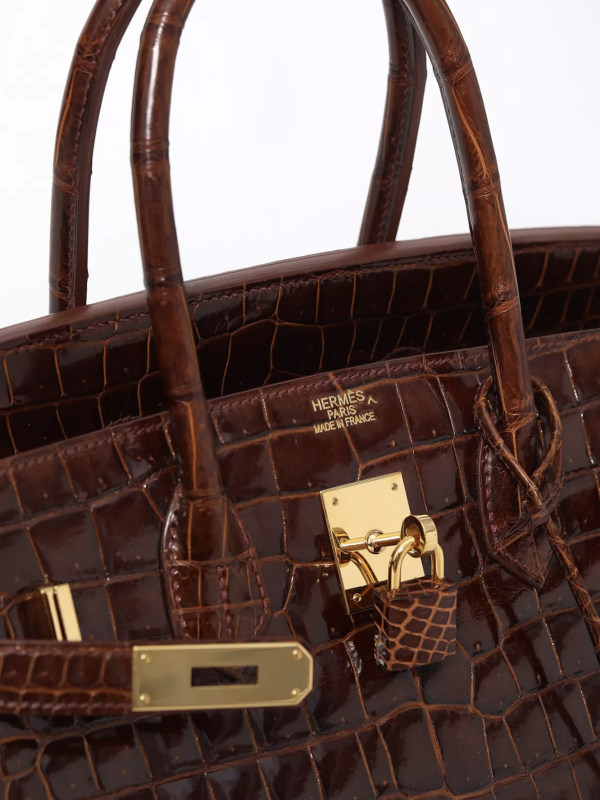
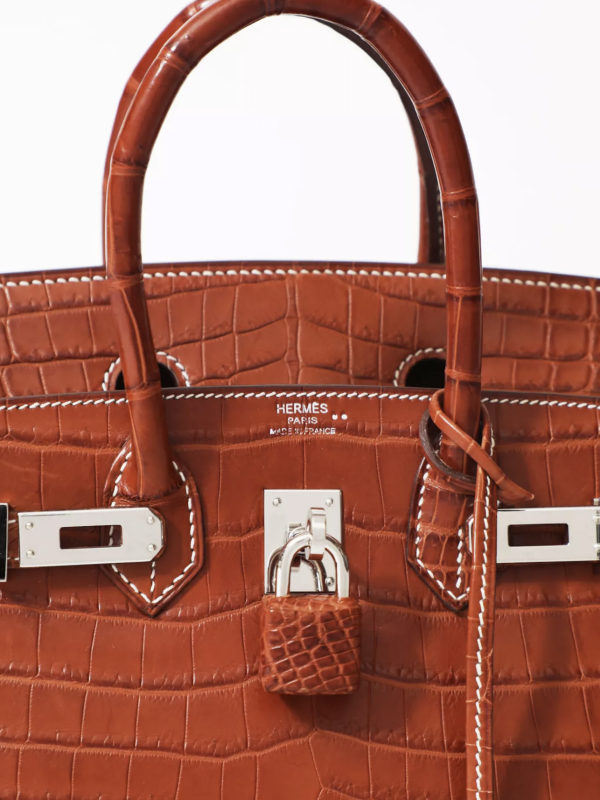
Crocodile Niloticus
Le crocodile Niloticus est le deuxième cuir exotique le plus convoité d’Hermès. Il provient d’une espèce d’eau douce originaire du fleuve Nil en Afrique.
Ce cuir se distingue du Porosus par :
- Des écailles légèrement plus grandes
- Un motif moins symétrique
Un moyen rapide d’identifier un cuir Niloticus est de repérer le symbole “..” (tréma) apposé sur le marquage Hermès en feuille d’or ou d’argent.
À la fois élégant et précieux, le crocodile Niloticus est apprécié pour son grain unique et sa texture luxueuse, offrant un équilibre parfait entre rareté et sophistication.
Alligator Mississippiensis
Bien que proche du crocodile, l’alligator Mississippiensis se distingue par ses écailles sans pores, lui conférant une texture lisse et uniforme.
Extrêmement résistant, ce cuir présente une surface généralement moins régulière que celle du crocodile. Seule une sélection très limitée de peaux répond aux exigeants critères de qualité Hermès, rendant ce cuir particulièrement rare et précieux.
En raison de cette sélection rigoureuse, l’alligator Mississippiensis est principalement utilisé pour des sacs de plus petite taille et des accessoires, plutôt que pour les modèles plus imposants de la Maison.
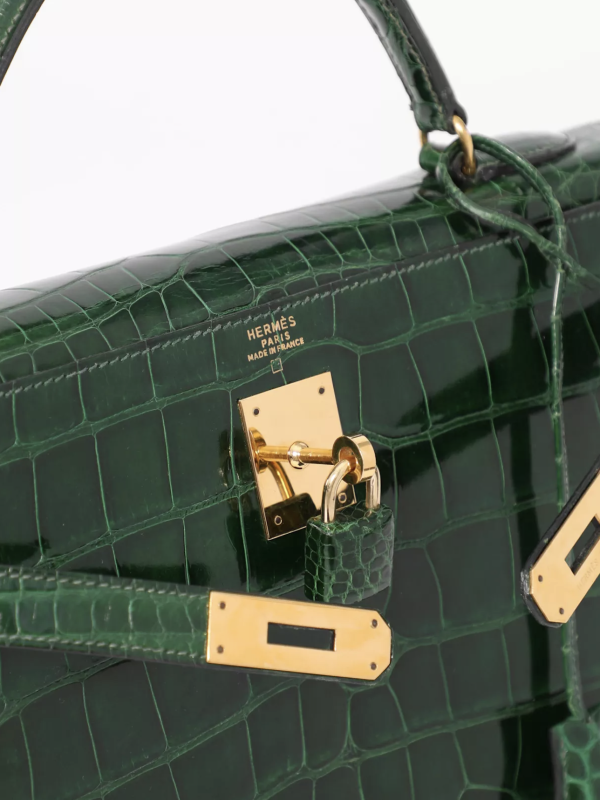
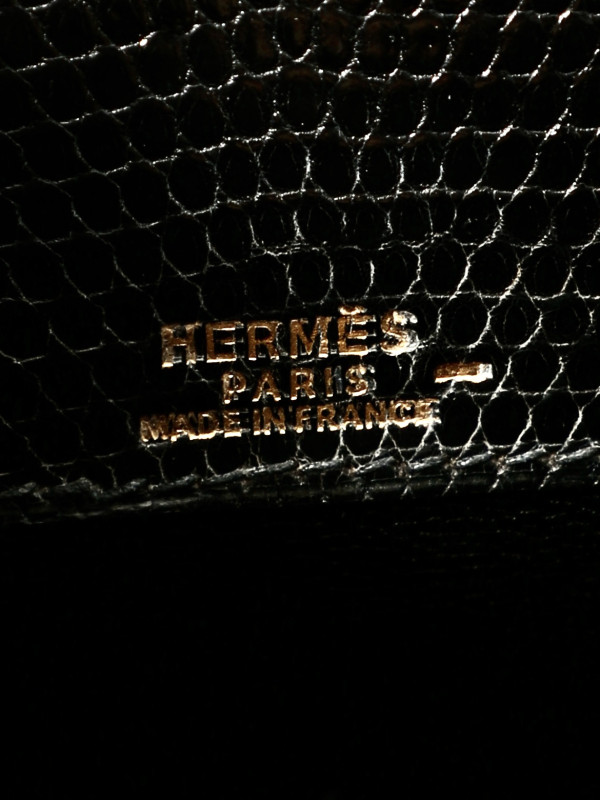
Varanus Niloticus
Le Varanus Niloticus est l’un des cuirs exotiques les plus rares et les plus convoités d’Hermès. Apprécié pour son élégance glamour, il se distingue par :
- Des écailles raffinées et parfaitement régulières
- Une exceptionnelle réaction aux teintures, permettant des couleurs profondes et captivantes
Bien que faisant partie des plus grands reptiles, le lézard Niloticus est plus petit que le crocodile ou l’alligator, ce qui limite son utilisation à des sacs de moins de 25 cm. On le retrouve principalement sur des pochettes du soir et sacs à bandoulière, où son éclat luxueux sublime chaque pièce.
L’un des cuirs exotiques les plus anciens utilisés par Hermès, le Varanus Niloticus existe en deux finitions :
- Lisse (Shiny), pour un effet ultra-luxueux
- Mat, pour une élégance subtile
Réputé pour bien vieillir, ce cuir est naturellement protégé par ses écailles, bien qu’il reste sensible aux éléments. Pour identifier le Varanus Niloticus, Hermès appose un tiret “-” à côté du marquage de la marque, différenciant ainsi ce cuir rare et précieux.
Autruche
Originaire d’Afrique du Sud, l’autruche est la seule espèce aviaire utilisée en maroquinerie de luxe. Son cuir se distingue par ses follicules caractéristiques, vestiges des plumes, dont la densité contribue à la valeur et à la rareté de chaque peau.
À savoir avant d’acheter un sac en cuir d’autruche :
- Les poignées : elles ont tendance à montrer les premiers signes d’usure en raison des huiles naturelles présentes sur la peau des mains.
- La couleur :
- Les teintes subtiles sont polyvalentes et faciles à porter.
- Les couleurs vives et rares sont les plus convoitées et atteignent les prix les plus élevés.
À la fois souple, durable et sophistiqué, le cuir d’autruche est un choix prisé pour les amateurs de sacs au cachet unique et intemporel.
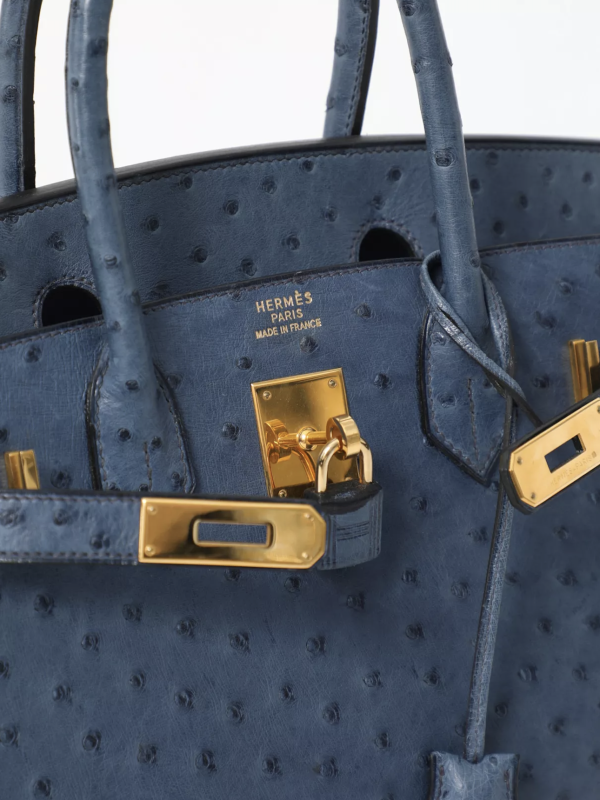
Entretien des cuirs exotiques Hermès
Comme leur nom l’indique, les cuirs précieux nécessitent une attention particulière. Plus sensibles aux éléments que les cuirs classiques, les sacs en Crocodile, Alligator, Varanus et Autruche doivent être protégés de :
- La pluie
- Les crèmes pour le corps
- L’exposition excessive au soleil
- Les températures extrêmes
Précautions à prendre :
- Évitez le frottement des cuirs clairs contre des vêtements foncés pour prévenir tout transfert de couleur.
- Stockez soigneusement votre sac dans un environnement sec et sombre, à température ambiante, avec un coussin de maintien à l’intérieur, dans sa boîte et sa housse d’origine.
- Après chaque utilisation, essuyez délicatement votre sac avec un chiffon doux.
Enfin, pour préserver la beauté et la souplesse du cuir, il est recommandé de confier votre sac à un spa spécialisé au moins une fois tous les deux ans. Avec un entretien méticuleux, un sac exotique Hermès traversera le temps, devenant encore plus somptueux avec les années.
Chez ReSee, chacune de nos pièces vintage ont une histoire. Cela en grande partie grâce à notre communauté imbattable de collectionneurs.
Vendez avec nous
